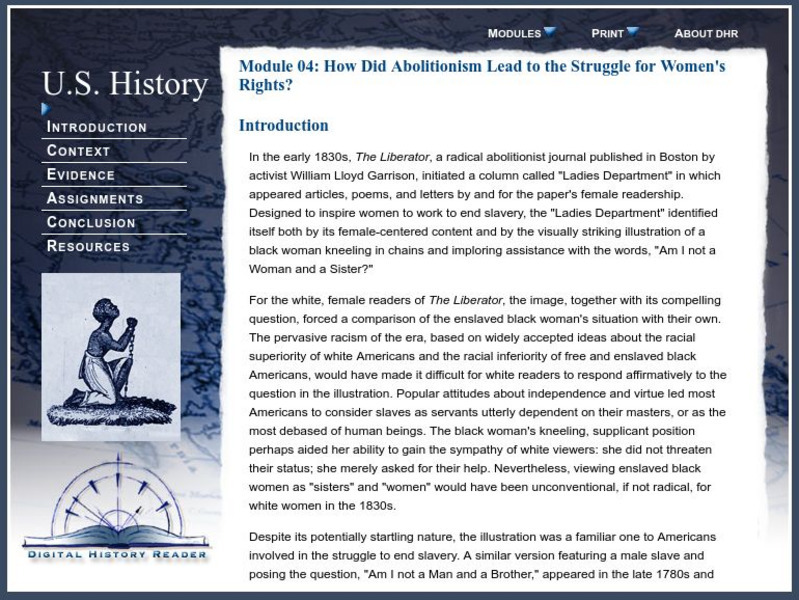Annenberg Foundation
Antebellum Reform
Scholars investigate the Antebellum period in the United States in an engaging lesson. Groups analyze technological, religious, economic, and social changes occurring during the time period prior to the Civil War. Using their new...
Annenberg Foundation
Slavery and Freedom
How do nineteenth-century texts by African American and Native American writers contribute to the country's ideals of freedom and individuality? Learners explore the topic by watching and discussing a video, reading biographies, writing...
Gilder Lehrman Institute of American History
Slave Narratives: Frederick Douglass, Harriet Jacobs, and the Columbian Orator
Young historians practice in-depth, quality analysis of primary source texts in this three-lesson unit, which examines excerpts from the slave narratives of Frederick Douglass, Harriet Jacobs, and Caleb...
Annenberg Foundation
Annenberg Learner: America's History in the Making: Antebellum Reform
Nineteenth century United States saw the creation of reform movements: temperance, abolition, school and prison reform, as well as others. This unit traces the emergence of reform movements instigated by the Second Great Awakening and...
Virginia Tech
Dhr: How Did Abolitionism Lead to the Struggle for Women's Rights?
Online learning experience consists of a self-contained module focussing on abolitionism and the struggle for women's rights. The module includes an introduction outlining the module objectives and historical questions, background...






